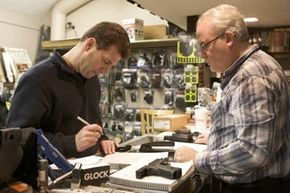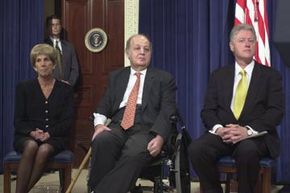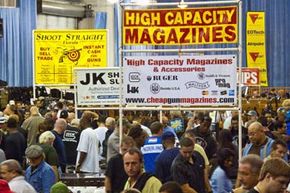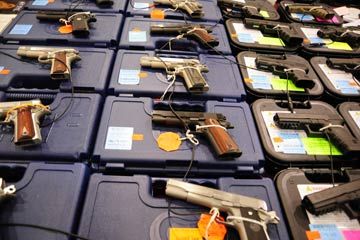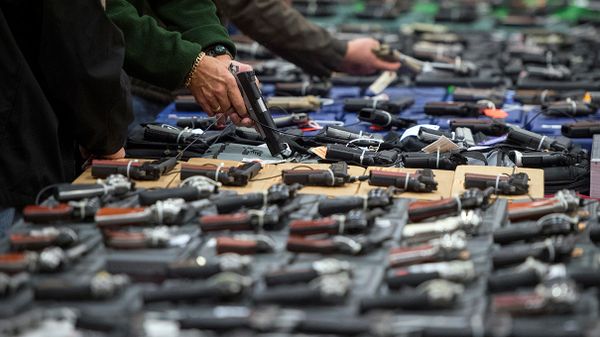Like clockwork, after each mass shooting that shocks the U.S., the topic of "gun control" dominates media and politics. It was everywhere after Colorado's Columbine High School rampage of 1999, 13 dead; the Virginia Tech massacre of 2007, 32 dead; the 2011 shootings outside a grocery store in Tucson, Ariz., six dead and congresswoman Gabby Giffords critically injured; the 2012 shootings in a Colorado movie theater, 12 dead; and later that year the slaughter of 20 first graders and six adults at Sandy Hook Elementary in Connecticut.
After expressing shock and grief over the killings, the conversation often turns to firearm background checks. Mandatory background checks are intended to keep guns out of the wrong hands. Ideally, they turn up any documented history that could indicate a potential buyer's threat to public safety. But they appear to be failing in some cases.
Advertisement
The implementation of firearms background checks is acknowledged by most to be imperfect, but it has its successes. Of the roughly 166 million background checks performed between 1998 and 2013, more than 1 million turned up information that prevented the purchase of a firearm [source: FBI]. In those cases, a violent felon or a stalker or someone recently released from a court-ordered stay at a mental institution went home without a gun.
Or at least that gun. After a man with a history of mental illness named John Patrick Bedell was denied a gun in California due to background-check results, he went to Nevada, which doesn't require background checks on private sales, bought a gun, and proceeded to shoot two cops in front of the Pentagon in March 2010 [source: National Law Enforcement Partnership].
While there has been a Gun Control Act since 1968 that bars certain people from owning firearms (for instance convicted felons), it was the 1981 attempted assassination of U.S. President Ronald Reagan that got an enforcement mechanism in place. An FBI department called NICS – the National Instant Criminal Background Check System – was established under the Brady bill of 1993 to enforce background checks.
Advertisement
